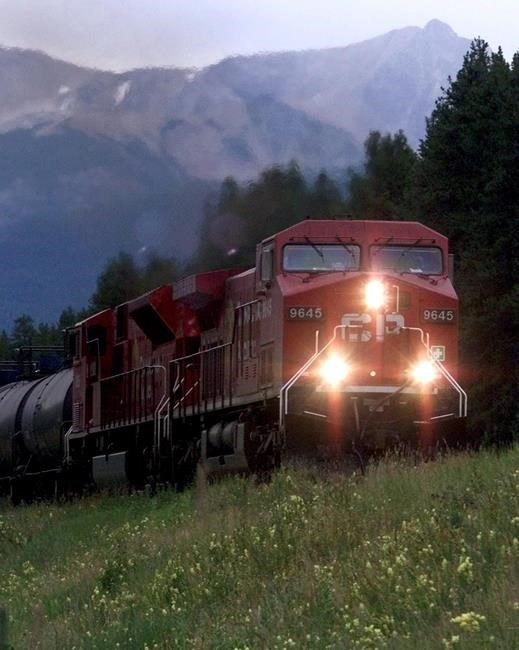CALGARY — The backers of a proposed $1.5-billion passenger train that would connect Calgary to Banff say they are waiting for a yes or no from the Alberta government before proceeding with the project's next steps.
Liricon Capital Inc., the company behind the proposed rail link between the Rocky Mountain tourist mecca and the Calgary International Airport, said Monday it has not yet received a response to its proposal that the province commit $30 million annually to the project.
Liricon managing partner Jan Waterous said under her company's unsolicited proposal, the $30 million provincial contribution would not go toward capital costs — which would be covered half by the Canada Infrastructure Bank with the other half covered by Liricon itself, its project partner Plenary Associates, and debt financing. Instead, the $30 million annually for an approximately 50-year span would help to cover the project's mortgage, making the province the ultimate owner of the train.
But Waterous — who along with husband Adam owns the Mount Norquay ski resort, as well as the long-term lease for the Banff train station — said Liricon is still in the dark about the province's intentions. She said the project cannot move ahead to its next phase — detailed design work and intensive consultations with communities along the route — without more clarity.
“What we need at this point is we need a nod from the provincial government," Waterous told reporters following an address to the Calgary Chamber of Commerce.
"We were hoping to hear we were good to go from the province a few weeks ago ... we're ready to roll as soon as we get that go-ahead from them."
Alberta Premier Jason Kenney has previously spoken positively about the merits of the proposed project but resigned as United Conservative Party leader last month, though he remains premier until a new leader is chosen. A date for a leadership vote has not yet been named
Rob Williams, press secretary to Transportation Minister Rajan Sawhney, said in an email Monday that the proposal is still being examined.
"Alberta’s government continues to assess all aspects of the proposed project, but has not made a decision on whether to provide any financial support," Williams said.
Liricon's proposed vision involves a European-style tourist train that would also serve local commuters, with service through seven communities as well as a stop in downtown Calgary. Ticket revenue is expected to generate about $30 million per year, with net ticket costs for Albertans priced at about $20, and out-of-province users paying more.
The project would be built within the existing Canadian Pacific Railway Ltd. freight corridor, which means it would require the twinning of the existing track. Waterous said it would take about three years after receiving the green light to complete the project.
Municipal leaders in the area, including the mayors of both Calgary and Banff, have praised the passenger rail proposal for its potential to improve connectivity in the region while also reducing greenhouse gas emissions.
Liricon's own estimates suggest a passenger rail line could capture 25 per cent of daily visitors to Banff, reducing the impact of personal vehicles on the national park.
Other local organizations, including Tourism Calgary and the major airlines that serve the Calgary International Airport, have also endorsed the project.
But environmentalists have previously raised questions about the impact increased rail travel could have on wildlife in the area, as well as the potential environmental harm that could come if the rail line proves popular and increases overall visitation to the park.
After years of deficits, Alberta is widely expected to post a multibillion-dollar surplus this year (possibly as high as $10 billion) thanks to sky-high oil prices in 2022. That could make provincial funding of the Banff passenger rail project more likely.
"It definitely makes us optimistic," Waterous said of the booming commodity price environment and the recent reversal in the province's fiscal health.
"But I think the most important thing for the Alberta government to hear is not $30 million in and of itself — they have to look at the train in terms of what it's going to do to build the economy for the province."
This report by The Canadian Press was first published June 6, 2022.
Amanda Stephenson, The Canadian Press



